 “The vitriolic, at times vicious, attacks on Modi in the Western media are a product of the real fear that a Modi government will upend the fraudulent elite power structure in Delhi with geopolitical consequences well beyond India’s borders. Modi will be tough on Pakistan, pragmatic with China and cooperative with Japan. He will deal with the West on India’s—not the West’s—terms.” – Minhaz Merchant
“The vitriolic, at times vicious, attacks on Modi in the Western media are a product of the real fear that a Modi government will upend the fraudulent elite power structure in Delhi with geopolitical consequences well beyond India’s borders. Modi will be tough on Pakistan, pragmatic with China and cooperative with Japan. He will deal with the West on India’s—not the West’s—terms.” – Minhaz Merchant
 The attitude of the West towards Narendra Modi reflects a deep political dilemma. Used to dealing with pliable dictators in the Middle-East and weak, corrupt governments in the Indian subcontinent, the West for the first time faces the prospect of a democratically elected leader—Modi—who is neither pliable nor corrupt.
The attitude of the West towards Narendra Modi reflects a deep political dilemma. Used to dealing with pliable dictators in the Middle-East and weak, corrupt governments in the Indian subcontinent, the West for the first time faces the prospect of a democratically elected leader—Modi—who is neither pliable nor corrupt.
Western media often hews slavishly (but with dexterous sophistry) to official Western foreign policy. That policy is often self-interested, disruptive and intrusive. It has propped up brutal Arab dictators, bankrolled a terrorist state like Pakistan and destabilised countries ranging from Syria to Ukraine.
The US and its allies in Europe were delighted to work for ten years with a government like the United Progressive Alliance (UPA). A prime minister without real power like Manmohan Singh and a de facto leader like Sonia Gandhi with limited accountability but absolute power created a fertile geopolitical arena for Washington.
The liberal power elite in Delhi was similarly co-opted. The Americans know how easily journalists, academics, think-tankers and NGOs fall for sponsored foreign seminars, gifts, donations and other rewards.
In return the Indian liberal, intellectual elite—much of it neither really liberal nor really intellectual—was compromised.
Modi provokes a hostile reaction in both these constituencies—Western governments and media on the one hand and their co-opted Indian quasi-elite on the other.
The vitriolic, at times vicious, attacks on Modi in the Western media are a product of the real fear that a Modi government will upend the fraudulent elite power structure in Delhi with geopolitical consequences well beyond India’s borders.
Modi will be tough on Pakistan, pragmatic with China and cooperative with Japan. He will deal with the West on India’s—not the West’s—terms.
Grandees like Amartya Sen and his fellow-travellers in India and the West blanch at the very thought. Their idea of India is not most Indians’ idea of India. It is a lesson they may learn the hard way on May 16. [Article continues below images]
As I wrote in my book, The New Clash of Civilizations: How the Contest Between America, China, India and Islam Will Shape Our Century, America’s history provides many clues to its current dilemma over dealing with India’s likely new political leadership.
The United States was founded by working-class families escaping religious persecution from newly-Protestant England 425 years ago. These English settlers (Britain as a nation did not yet exist) massacred indigenous Indians, appropriated their land and shipped in slave labour from Africa to work the cotton fields.
The US won independence in 1776 and as it grew more powerful, it invaded Mexico and by 1848 had annexed what are today California, Texas, Arizona, Colorado, Nevada, Utah, Wyoming and New Mexico. By the 1890s, it had colonized the Philippines and built a silent empire arching from the Pacific to the Atlantic.
After the Second World War it invaded Korea, Vietnam and Grenada, and propped up dictators and puppet-monarchs in Latin America and the Middle-East (including the early Saddam Hussein and the sybaritic Shah of Iran). It made a pact with the sheikhs of the post-Ottoman Middle-East to deny Arab citizens voting rights in return for US military protection, ostensibly against Israel but in reality against popular democratic movements in their own countries.
In 1932, the US and Britain established Saudi Arabia—custodian of the holy mosques in Mecca and Medina and a part of the Ottoman Empire since 1818—as an independent Islamic kingdom under the Wahhabi Al Saud dynasty.
Over the next thirty years, a pro-West military dictator or sheikh was installed in virtually every Arab country. Caught in a pincer between Anglo-Saxon politicians and Arab sheikhs, the Arab citizen had no democracy, few freedoms but, thanks to oil, reasonable prosperity.
The US continues to follow a foreign policy of ruthless self-interest in Asia to secure its geopolitical goals. But America is a declining power. By 2045, it will not only be relegated to the status of the world’s third largest economy (after China and India), but it will also, for the first time in its history, become a non-white-majority country.
African-Americans, Latinos and Asians comprise nearly 30 per cent of America’s population today. By 2045, that figure will rise to 51 per cent. The implications of this demographic shift will resonate across social, ethnic, economic and cultural faultlines.
As India’s own demographic dividend kicks in, the new government’s bargaining power with a declining US will grow—if South Block gets its strategy right.
That strategy involves deepening India’s economic and diplomatic engagement with East Asia, Africa and Latin America, influencing the course of the post-US Af-Pak world and creating a secure environment in the Indian Ocean to the south and the central Asiatic republics to the north.
Can a putative Modi government achieve these objectives? The West and sections of its media would appear to hope not. Strong Indian leadership is anathema to its historical agenda which favours a geopolitically accommodative status quo.
That status quo is about to be demolished by an outsider. Modi will not give Western governments—or its media—the deference they have long taken for granted in the incestuous power warrens of Lutyens’ Delhi. – Times of India, 9 April 2014
» Minhaz Merchant is a biographer, editor, journalist, and publisher. He is founder-editor of business magazines Gentleman and Business Barons. Follow @minhazmerchant on Twitter
Filed under: india, USA | Tagged: anti-hindu media, barack obama, geopolitics, india, nancy powell, narendra modi, nationalism, politics, psychological warfare, US foreign policy, US imperialism, US politics, US-india relations, USA, western media |


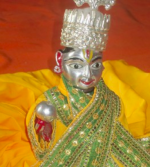
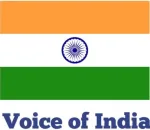




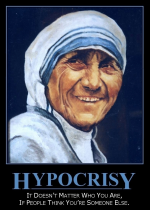
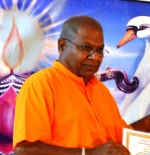


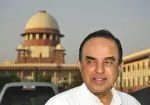
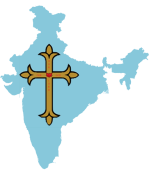




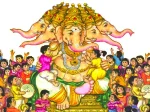



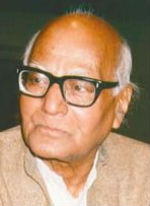

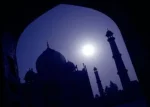



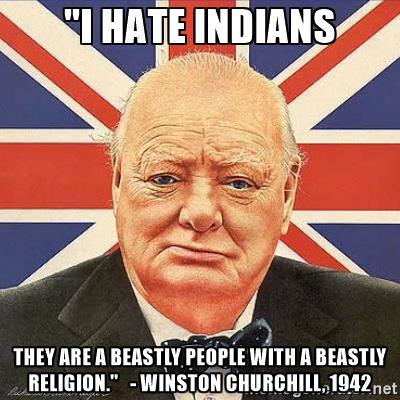
Both Minhaz Merchant [in a Times of India opinion piece called Modi: Why Western media still doesn’t get it], who highlights the disgraceful calumny the Western media is heaping on Narendra Modi and attempting to influence the Indian elections and David Cohen of the Daily Caller, [Is India about to elect its Reagan?], who compares Narendra Modi to Ronald Reagan, are completely wrong.
The Western media, especially the ones with foreign correspondents in India, are arms length appendages of their foreign chancelleries and do the bidding of their governments. It is now known that during the 1950s and 1960s every single Sunday Times correspondent was an agent of the British government. Why does anyone imagine they are now merely journalists?
These Western states have always been opposed to strong government in India, which was the parting aspiration of the British when they were compelled to depart India in 1947. Countless documents and public statements make that amply clear. It was their hope that India would be left broken backed and divided among warring states, having to turn to to London for succour and guidance. This dream was thwarted by Sardar Patel, but there has been a reversal of this reality since the 1990s.
This is why Western governments disliked Jawaharlal Nehru, but later found him not as bad as they feared, but still a Soviet lackey. They hated Indira Gandhi, particularly after 1971 and the Kissinger diaries make clear how much. Modi is ideologically and politically committed to a strong India, which is causing so much heart burn in a number of Western capitals, including Washington, London and Paris. He is also likely to smartly rein in evangelical activities that have been allowed to rip in India by Sonia and her venal crew.
We should not imagine Western governments are concerned about the welfare of Muslims. They are killing them by the million in the Arab world over past decades, with more than 2 million+ in Iraq alone, beginning with sanctions in the 1990s. But Muslims are an unavoidable ally to keep India off balance, with every single incompetent and rotten Indian politician dependent of their votes to stay in power.
And please don’t feel proud that Narendra Modi is being compared to Ronald Reagan, simply because he was the leader of the most powerful white country in the world. Ronald Reagan was a murderous mass killer, who inflicted the worst imaginable human rights violations on Central America, Nicaragua most of all. He was also the initiator of the financial deregulation on behalf of his rich friends that has come to haunt the world economy today. In addition, Reagan’s ‘star wars’ military programme had a ruinous impact on international relations and threatened global conflict. He left behind a militarised and unequal America, the beginning of whose rapid decline can be dated to the late 1970s, when Ronald Reagan was elected President.
Narendra Modi is not responsible for any such crimes and nor is he likely to commit them. His aspiration is to create a strong, prosperous and peaceful India, which is what he has delivered in Gujarat during his tenure as chief minister. Simple, but true!
LikeLike
Tough on Pakistan, Pragmatic with China, and Cooperative with Japan- oh what words and ideas! I only hope this becomes a reality, with all that it implies for the US and its hegemony!
LikeLike